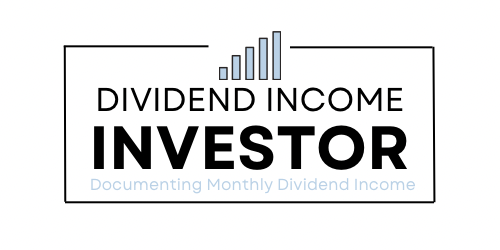Financial moves to make in your 30s — 14 important financial moves to consider for your 30s. Don’t repeat the same financial mistakes and set yourself up for success. This post may contain affiliate links.
Going from your 30s to your 40s is arguably the most important period in an adult’s life.
These are very formative years.
If you make the right financial moves in your 30s, you can set yourself up for an easier, more prosperous life later on.
But if you keep on making the same old financial mistakes that you did in your 20s, then you might never become wealthy. Your 30s are that important.
Furthermore, it’s a fascinating time in an adult’s life. Because for the first time ever, you have the income to buy anything you want, and you have no one else to answer to.
Of course, that much autonomy can be a bad thing in undisciplined hands. This is why 30 year olds absolutely must make the right financial moves during these years.
In this article, I will look at the most important financial moves to make in your 30s.
Since there’s a lot to cover, let’s dive right in.
Financial Moves To Make In Your 30s

1. Pay Off Student Debt
You don’t want to be carrying student loan debt too far into your 30s.
It will significantly limit your ability to save and invest money into assets.
Instead of having cash flow for savings or for a mortgage, you will have to make payments on a student loan.
As such, it’s best to eliminate student loan debt as early in your 30s as possible.
In turn, you will have more cash flow for saving and investing during this key time in your life.
In your 30s, you still have a long time frame for the money to compound, and it’s a key time for acquiring large assets such as a house.
2. Pay Off All High Interest Debt
High interest debt is the worst kind of debt.
You certainly do not want to be carrying high interest debt into your 40s.
It could become challenging to dig yourself out of that kind of financial hole later in life.
Habits become too strong, and it might be more challenging to work harder at a more experienced stage of life.
Since high interest debt is such a tremendous burden, it’s wise to pay it off as early as possible.
You absolutely have to create a plan to pay it off during your 30s.
3. Fix Your Credit
It’s OK to be an idiot with money when you are young.
But once you’re in your 30s, there’s not much room left for financial setbacks.
In addition to saving money and investing, you need to get your credit right to be ready to buy a house or for other large purchases.
So, check your credit score and follow good practices to improve it.
Related: Improve Credit Score Tips – Can I Improve My Credit Score?
4. Build The Right Financial Habits
Some people are really smart and they build the right financial habits in their 20s or younger.
I envy those people because I learned through making mistakes.
Anyways, if there’s ever a time to build the right financial habits, it’s in your 30s.
Building the right financial habits means you pay yourself first a percentage of your income, and it means you budget and manage money like an adult.
5. Buy A House
For most young people, their 30s are the perfect time to buy a house.
By the time you reach your 30s, you have enough time to save for a down payment and obtain enough career experience to afford a home.
Furthermore, buying a house in your 30s provides enough time to retire early with a mortgage paid off.
If you buy a house at 30 with a 25 year mortgage, you could technically have it paid off by the time you are 55.
Related: Should You Pay Off Your Mortgage Early? How Paying Off Your Mortgage Early Gives You Fewer Options
6. Invest 15% Of Your Income (Minimum)
You can get away with not investing in college and in your 20s.
But if you’re not investing in your 30s, retiring early is going to be next to impossible.
At the very least, you should save 15% of your income in your 30s.
This way, some of your money will be able to compound for you down the road.
If you wait until your 40s to start saving, your money doesn’t start to see the effects of compound interest until 50.
So, it’s important to start as early as possible to get your money working for you.
Saving a lot of money in your 30s will make your future a lot easier.
If you want to retire early, you should try to aim to save 20% of your income or higher. Ideally, aim to save at least 50% of your income for early retirement.
7. Have A Positive Net Worth
Your 30s are the time to get your money right.
You don’t want to be 39 year old with a negative net worth.
It’s time to have a positive net worth in your 30s.
This means your assets are greater than your liabilities.
Frankly, the only good debt to have is a mortgage.
Related: How To Increase Your Net Worth – 4 Steps To Follow And Repeat
8. Maintain An Emergency Fund
Seeing that you are in your 30s, being left with only $4 in your account is not cool anymore.
You don’t want to be forced to borrow money from friends or family to make ends meet.
In your 30s, there shouldn’t be a time when you are out of money. In any case, a 30 year old should have an emergency fund or an emergency plan.
No matter how far away payday is, you should always have access to some money at this stage of your life.
9. Consider Maintaining College-Level Frugality To Build Considerable Wealth
Although your 30s are a time to upgrade your lifestyle, they can also be used to build considerable wealth.
If you can maintain your same college lifestyle while entering your higher income earning years, you can save a tremendous amount of money.
So, before you jump into buying a new home or car, consider holding back until your 40s to boost your long-term wealth.
Now is not the time to buy your dream car. Not yet.
Get financial independence money first.
10. Start Building Additional Income Streams
Maintaining good financial habits in your 30s is great and all.
But you know what’s better?
Building additional income streams.
If you build additional income streams earlier in your 30s, you may be able to reach financial independence sooner.
In my case, I am building additional income streams through blogging and investing.
By the time I am 45 to 50, I am expecting that these income streams will cover my expenses.
Related: Income Streams – The 11 Best Income Streams For Financial Independence
11. Take Advantage Of Employer Matching Retirement Contribution Plans
In your 20s, a full-time salary is used to pay for the clothes you’ve always wanted, drinks, and dining out.
You don’t really think about taking advantage of employer investment programs.
But in your 30s, you’d better start thinking about employer matching programs.
If you are in your 30s and you are not accepting free money from your employer through a matching stock-sharing plan, just know that this is something you will regret.
12. Figure Out Your Career Direction
Of course, it’s possible to change your career later in life.
However, changing your career gets more difficult as you age.
As such, I believe it’s a good idea to figure out your career direction in your 30s.
At this age, you are presumably educated and somewhat experienced professionally, so you should begin to get an idea of what you do and do not like.
In my case, I realized I get bored easily at work. I will daze off and daydream easily. And I never liked school or taking work home with me. Also, I like jobs with downtime.
So, the ideal job for me is one that requires intense alertness for brief periods of time to keep me engaged.
In addition, I want as much autonomy as I can possibly get, and I prefer to work from home.
Once you find a career that suits your personality, you can focus on building wealth and improving other areas of life.
13. Consider Insurance Depending On Your Situation
Depending on your dependents, career, or financial situation, you may want to set up insurance in your 30s.
It’s a good time because you are still young enough to qualify for good rates.
Even though you are still young, setting up insurance allows you to protect what you are building.
14. Make An Estate Plan
Similar to setting up insurance or life insurance, you may want to speak to a lawyer to make an estate plan.
It sounds morbid to think about death at such a young age.
But you never really know what could happen.
If you build up a small fortune in your 30s, don’t you want to ensure that the money gets to the right hands if something should ever happen to you?
Of course, it depends on your personal situation. It never hurts to have a plan in place though.

Financial Moves To Make In Your 30s — Final Thoughts
Since I am currently going through my 30s, I figured it was a good time to write this post.
Personally, I don’t want to make the same mistakes I made when I was younger.
At this point of my life, I can’t afford any financial setbacks. I have to reach my long-term financial goals.
By following these financial moves to make in your 30s, I am hoping to keep myself on the right path.
Now I’d like to hear from you.
What financial moves are you making in your 30s? What other financial moves to make in your 30s are there?
Related Personal Finance Articles You Might Like
Should You Pay Off Your Mortgage Early? How Paying Off Your Mortgage Early Gives You Fewer Options
Improve Credit Score Tips – Can I Improve My Credit Score?
How To Increase Your Net Worth – 4 Steps To Follow And Repeat
Income Streams – The 11 Best Income Streams For Financial Independence
I am not a licensed investment or tax adviser. All opinions are my own. This post may contain advertisements by Monumetric. This post may also contain internal links, affiliate links to BizBudding, Amazon, Bluehost, and Questrade, links to trusted external sites, and links to RTC social media accounts.
Connect with RTC
Twitter: @Reversethecrush
Pinterest: @reversethecrushblog
Instagram: @reversethecrush_
Facebook: @reversethecrushblog
Email: graham@reversethecrush.com


 10 Leadership Skills And Qualities Needed In Business & In Life
10 Leadership Skills And Qualities Needed In Business & In Life
